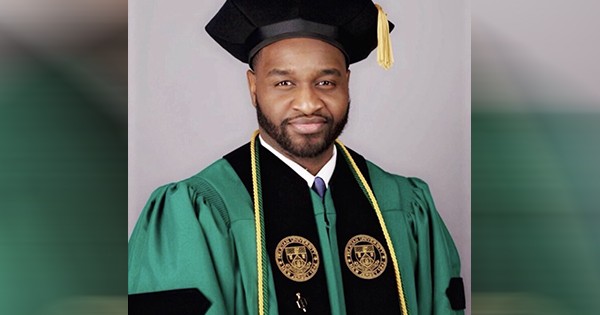At 27, Eli Joseph has become an inspiration, but he wasn’t always on top, in fact, he’s been rejected over and over again but learned not to let it break his spirit.
From being rejected by 25 universities including by JPMorgan more than 500 times and Columbia University where he teaches now, applying for thousands of jobs on Wall Street and getting rejected, (submitting a total of 853 applications from 2014 to 2019), Haitian American, Eli Joseph at just 27, is major inspiration all thanks to his resilience.
An educator and researcher, he is a faculty member at both Columbia University and Queens College, partner, and medical examiner at Quest Diagnostics, a former TEDx speaker, and a Forbes 30 under 30 scholars as well as part of Grammy Recording Academy, and there is no stopping him anytime soon.
In 2015, Joseph bagged his bachelor’s degree in Mathematics from Queens College, City University of New York, at age 20, a year later completed his master’s degree in Business Administration from Brooklyn College before proceeding to complete his Doctorate in Business Administration from Felician University to attaining fear as the first-ever graduate to complete the curriculum at the age of 24.
He authored The Perfect Rejection Resume, to help people build confidence to overcome their failures.
“We have a résumé that highlights our successes throughout our careers. Well recently, I created a rejection résumé which highlights all of my failures.” He cultivated a single-page document, formatted like a résumé that highlights all his major failures through education (rejections from institutions), work experience (rejections from firms), and awards (rejections from organizations).
The Perfect Rejection Resume will be available on Amazon on Tuesday, February 1, 2022.
Joseph has been teaching at universities since the age of 23, he began his teaching career at Marymount Manhattan College in 2017, the same year he went on to teach at Queen’s College. While entering the last year of his doctoral program, Joseph started teaching at Columbia University in 2018 after completing an online certificate program at the Harvard Business School.
“You hear people say all the time, ‘I’m not in competition with others, I’m in competition with myself.’ That’s great, but I’ll disagree with that slightly because I don’t think anyone is in competition with other people or themselves. I think people are in competition with time. And when it comes to time-based competition, if you can always compete against time, you’ll always make the time to achieve the things you think that you don’t have time for.”
“We all have 60 seconds in a minute, 60 minutes in an hour, 24 hours in a day, and 168 hours in a week. We all of that same amount of time.”
Prioritizing his time in the morning is how he does it. “Having a routine is very important” he shared. In order to get himself in a good groove for a day of accomplishing, he stays away from one of the biggest distractions. Mornings, when most people grab their phone, he doesn’t. “I don’t pay attention to my phone right away. Once you wake up and tap your phone, a bunch of notifications pop up and it’s difficult for you to address all of those notifications all at once.”



